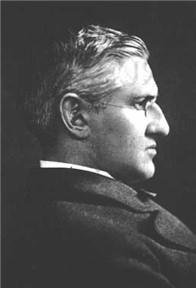
The book is fascinating on many levels. Probably the most obvious is the fact that while he is an atheist, he speaks very highly of the Intelligent Design movement. In fact, he credits the Intelligent Design movement for stimulating his thinking on the subject of origins. He disagrees with their belief in a Designer, but he has given them a fair hearing, and he says this:
Even if one is not drawn to the alternative of an explanation by the actions of a designer, the problems that these iconoclasts pose for the orthodox scientific consensus should be taken seriously. They do not deserve the scorn with which they are commonly met. It is manifestly unfair. (p.10)
But wait a minute. Aren’t the Intelligent Design arguments fatally flawed? Don’t they rest on an incredibly poor understanding of the nature of science? Not according to this philosopher. He has read both the Intelligent Design advocates and their critics, and he says:
Those who have seriously criticized these arguments have certainly shown there are ways to resist the design conclusion; but the general force of the negative part of the intelligent design position – skepticism about the likelihood of the orthodox reductive view, given the available evidence – does not appear to me to have been destroyed in these exchanges. (p. 11)
But wait a minute, isn’t the only motivation behind Intelligent Design the desire to “prove” the existence of God? Nagel says that’s certainly part of the motivation, but not all of it. After all, he mentions David Berlinski as someone who is sympathetic to the negative claims of the Intelligent Design movement but has no desire to believe in a Designer. He also says:
Nevertheless, I believe the defenders of intelligent design deserve our gratitude for challenging a scientific world view that owes some of the passion displayed by its adherents precisely to the fact that it is thought to liberate us from religion. (p. 12)
In the end, then, religious motivations exist on both sides. Some Intelligent Design advocates are motivated by their desire to lend evidence to their belief in a Designer, but some evolutionists are motivated by their desire to be liberated from religion. This even-handed observation is obviously true, but it is rarely made by those who do not believe in God.
Continue reading “An Atheist Who Rejects Materialist Neo-Darwinism”


